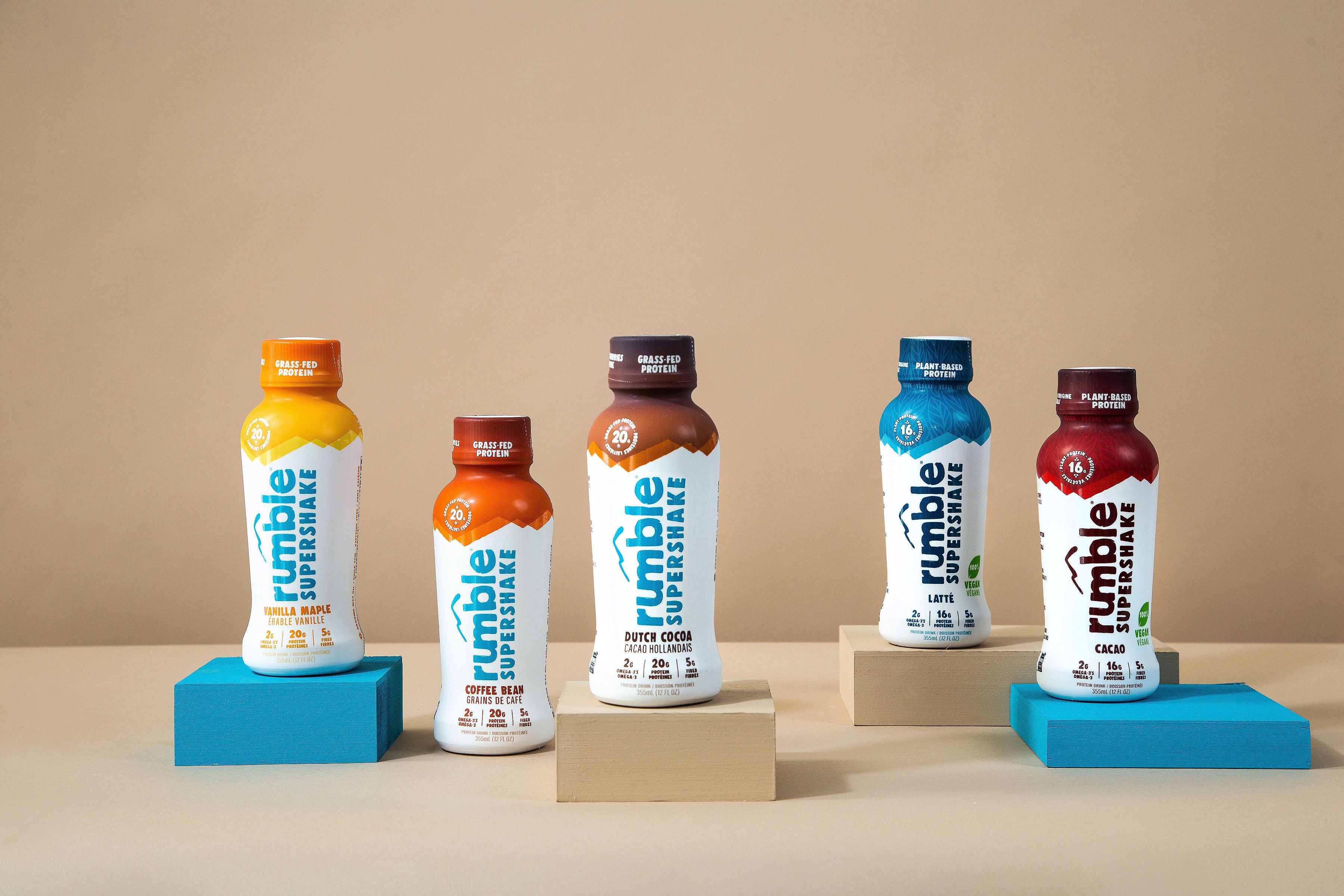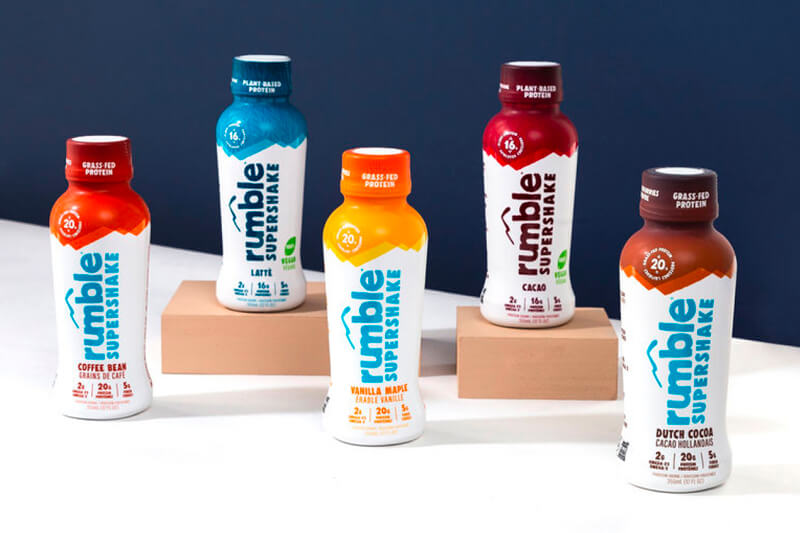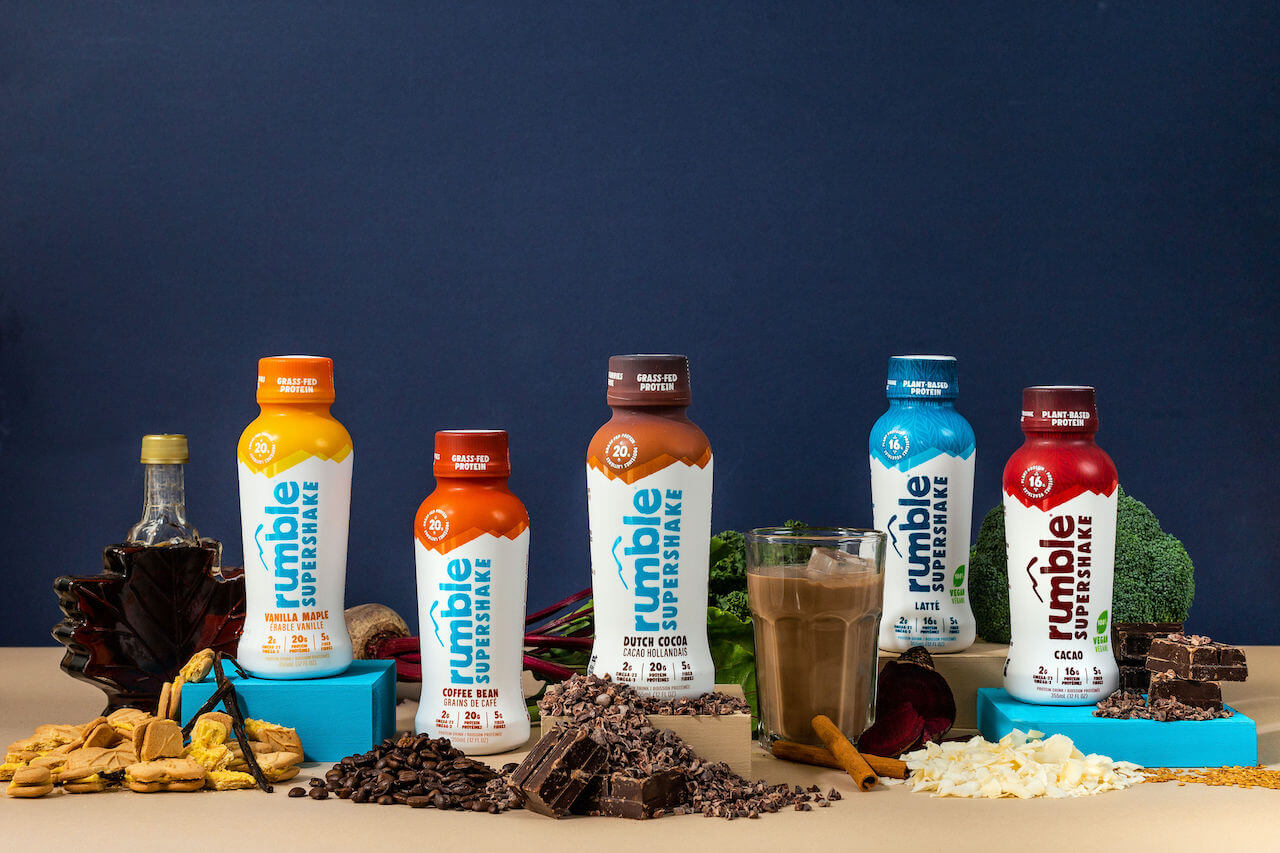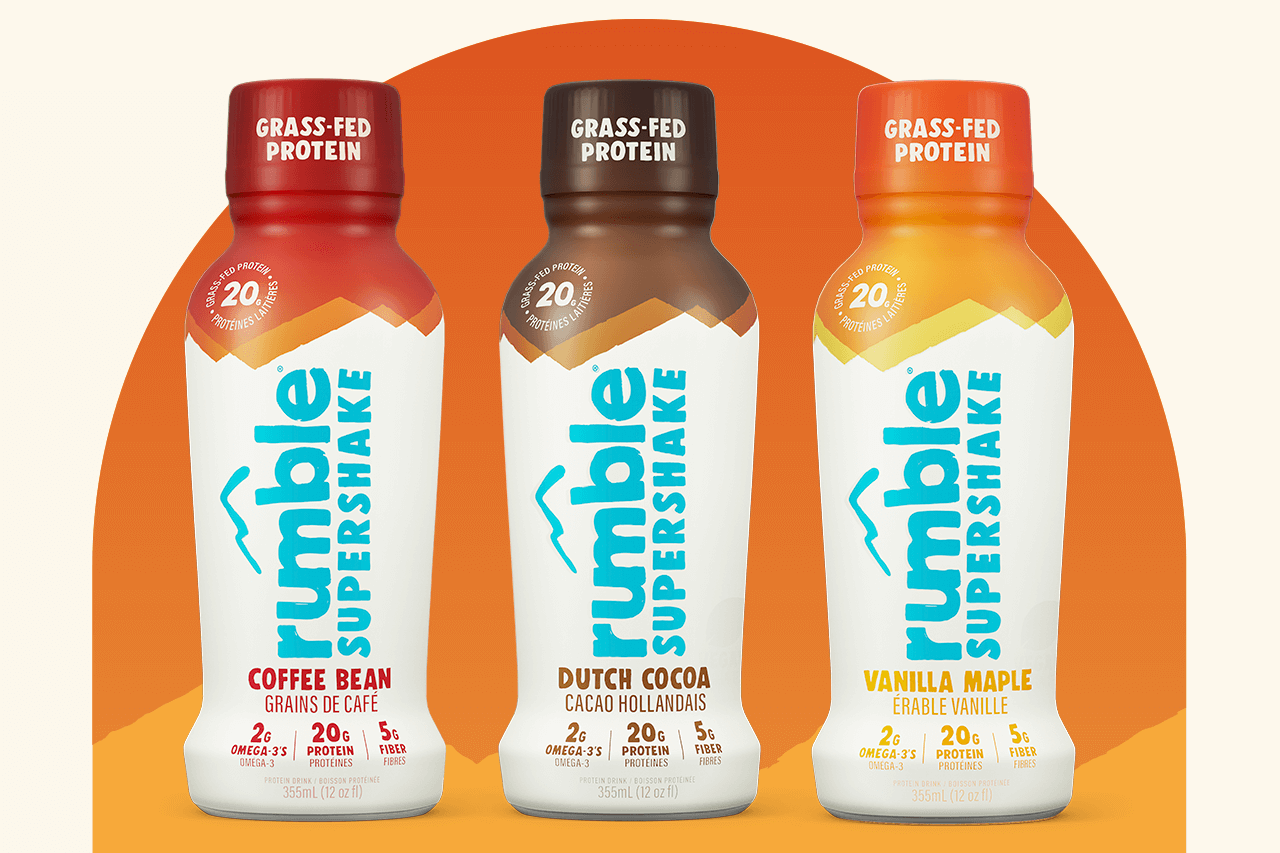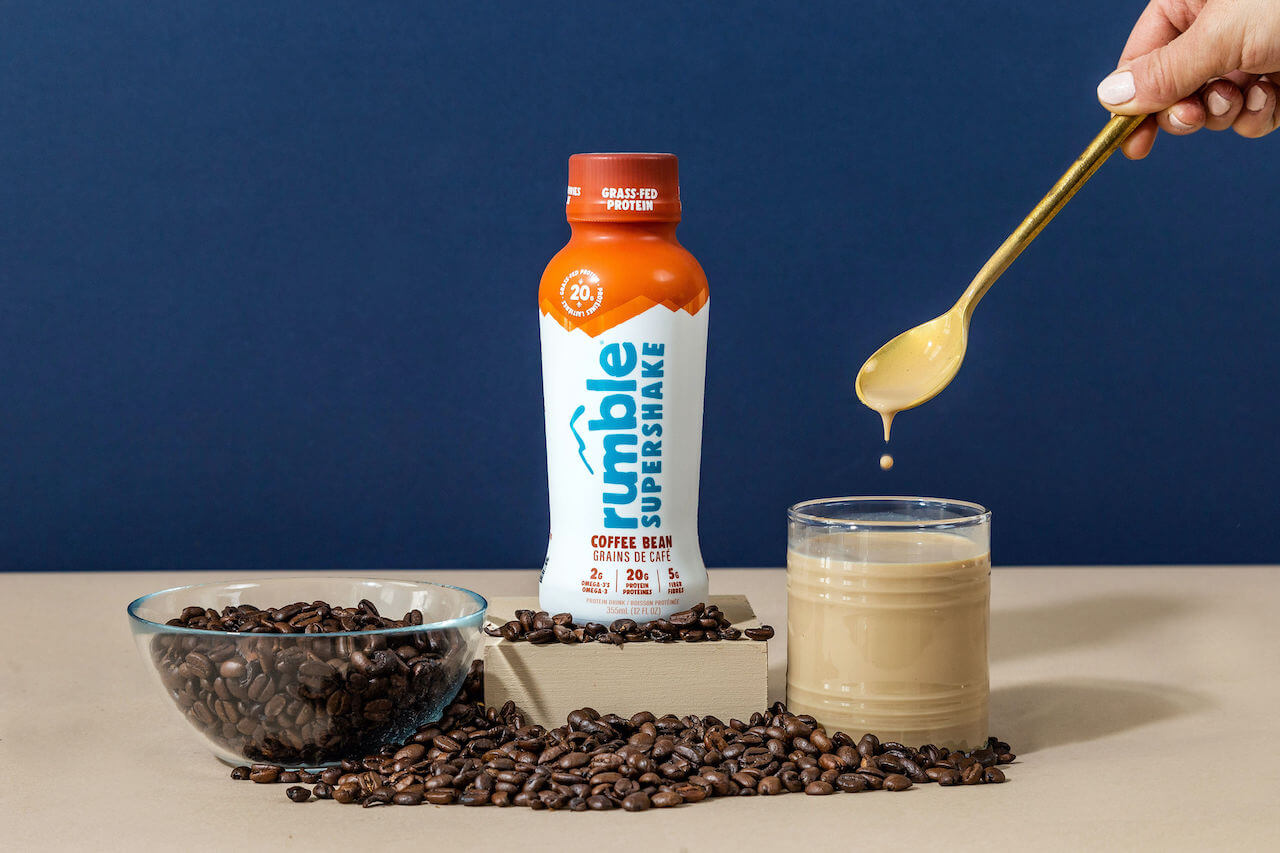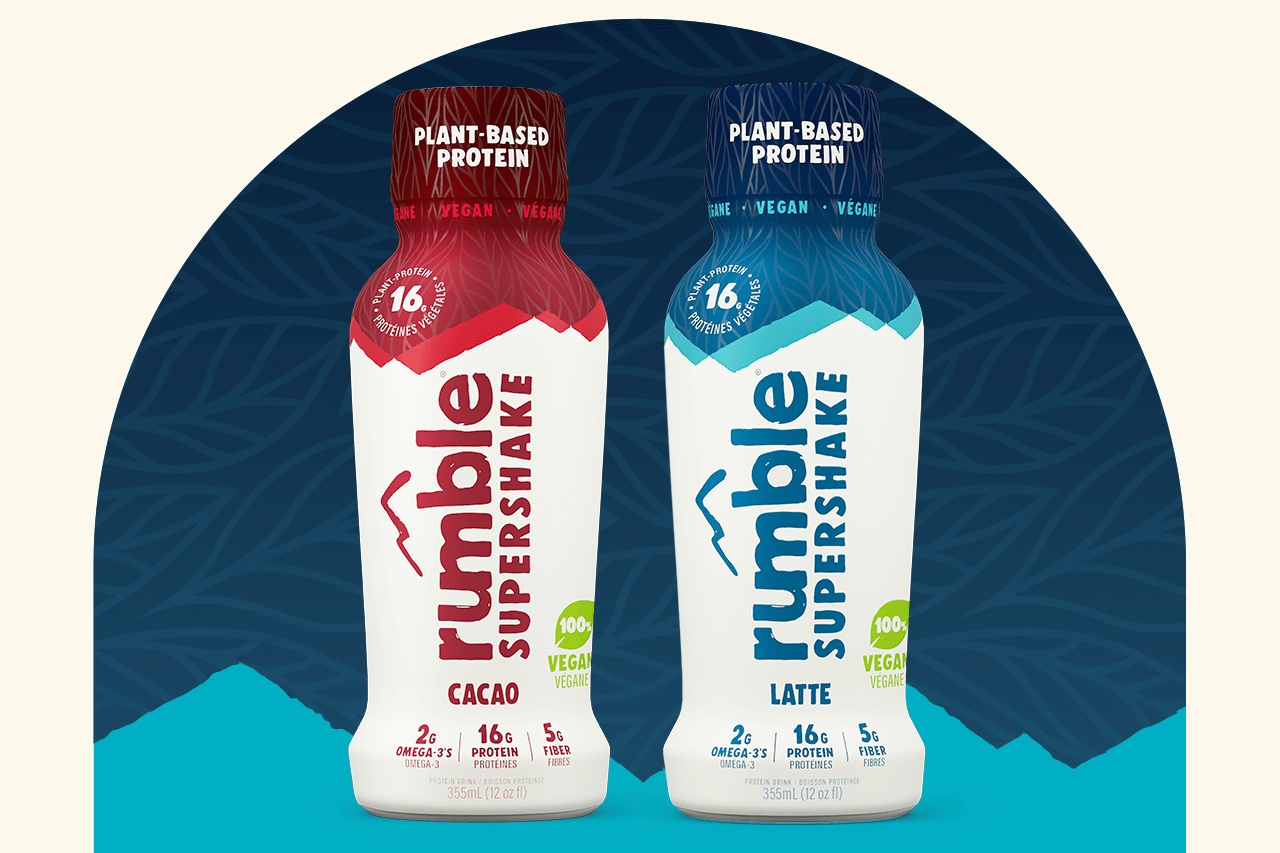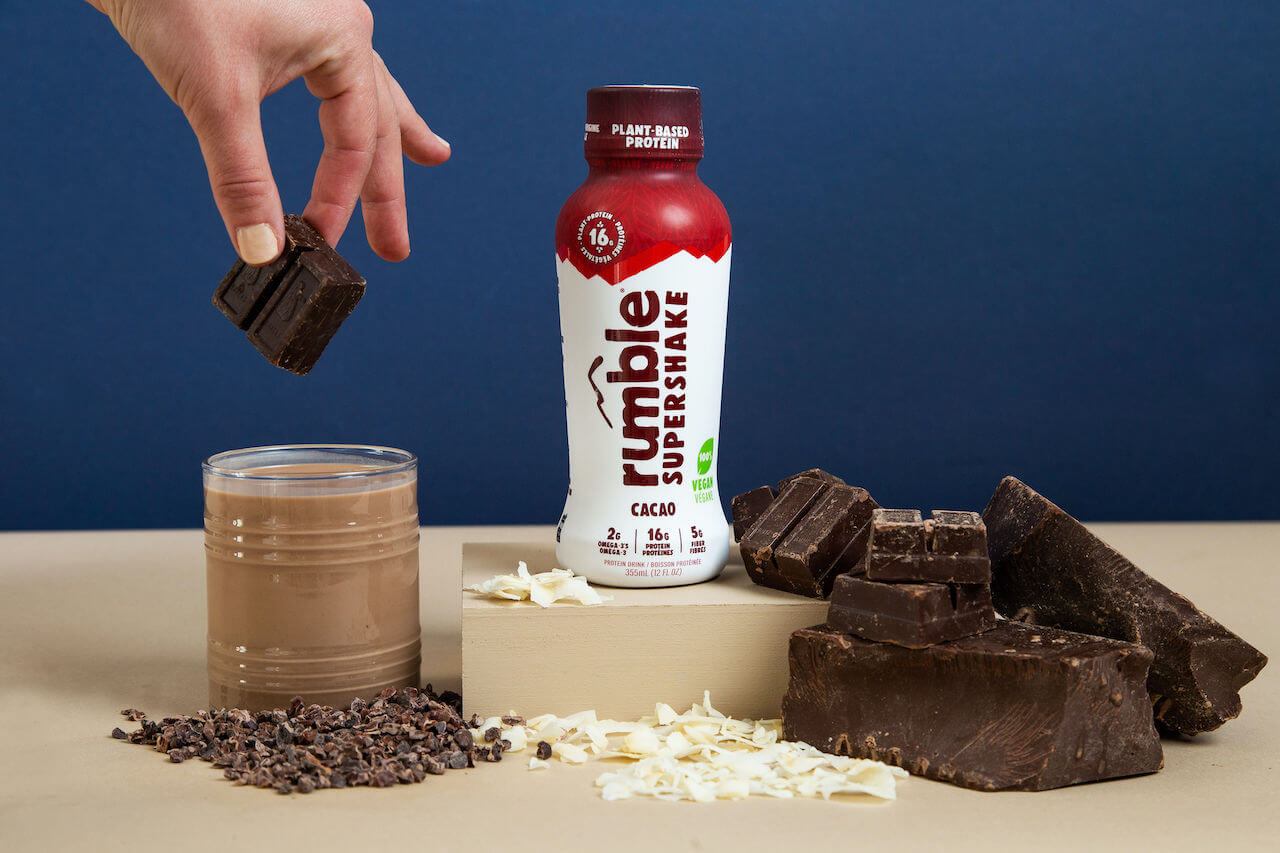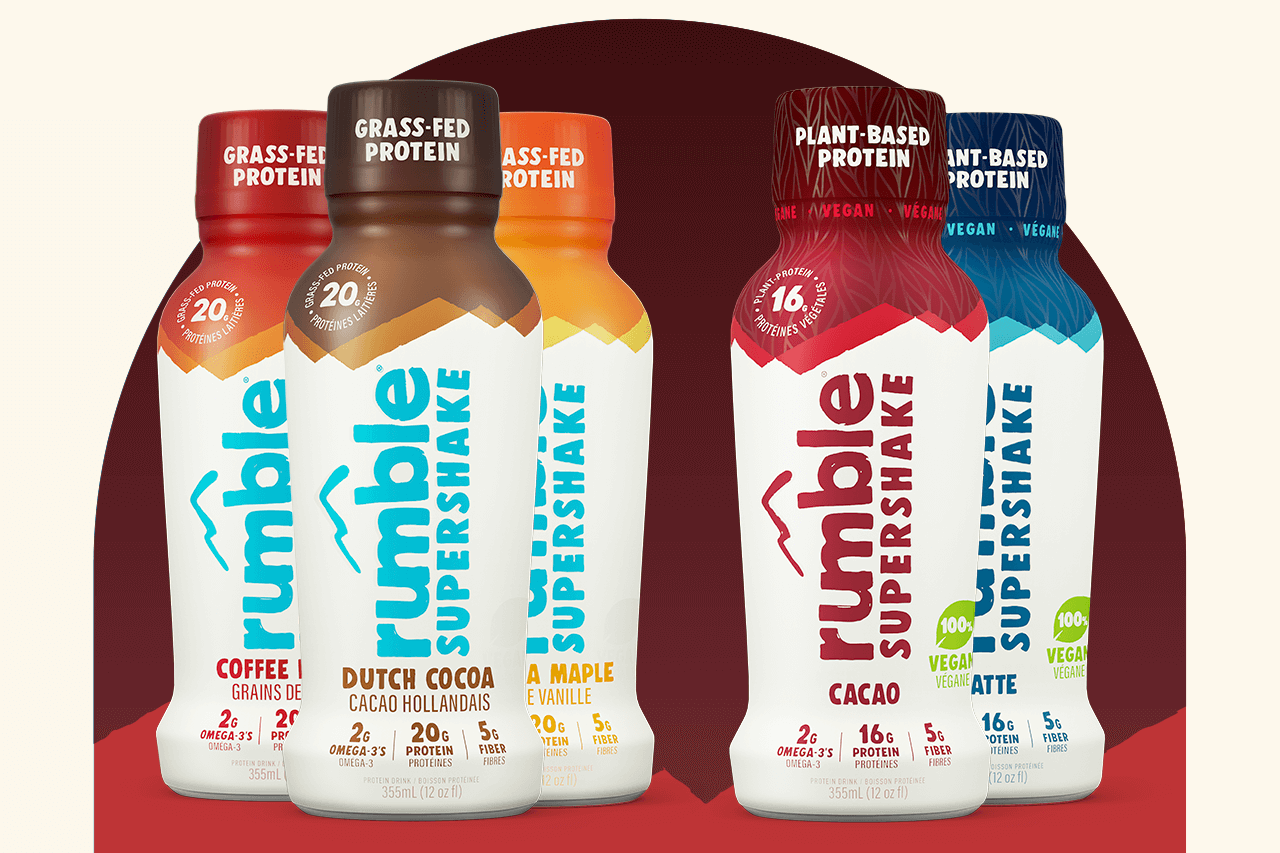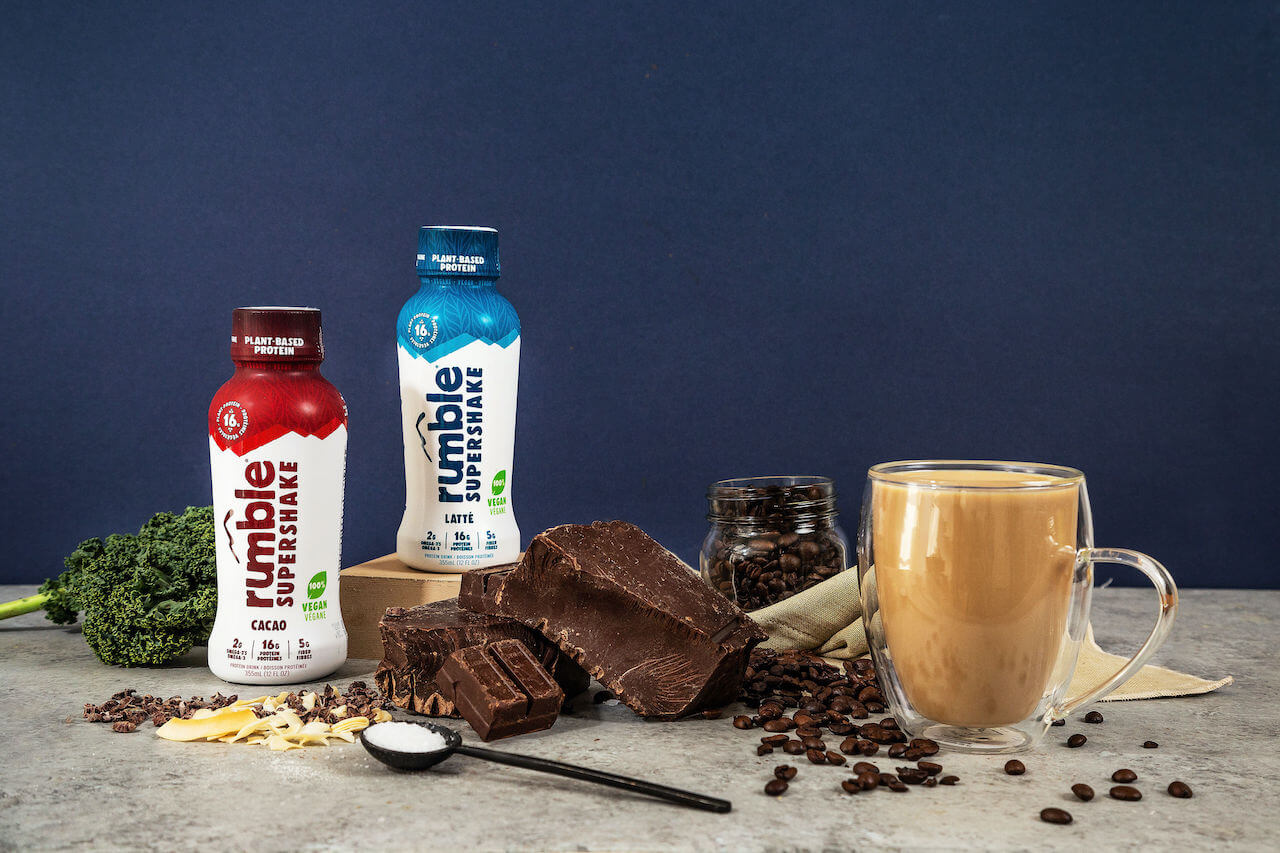From Broken Bones to Olympic Plans: Q&A with Rumble Triathlete Laurin Thorne

It takes a wild amount of grit, sweat, and determination to become an elite athlete in any sport, but Rumble Ambassador Laurin Thorne is training to master three. As a triathlete with the Victoria-based National Performance Centre, Laurin swims, bikes, and runs almost every day to keep her game up for international competitions. She’s shooting for the 2024 Olympics, and studying in her downtime. We caught up with her for a sneak peek at her routine and learned how she’s bouncing back from a near-catastrophic bike accident three years ago.
Q: You were a competitive swimmer before you started in triathlons - did you always want to be an athlete?
A: My parents enrolled my sister and I in sports at a young age. I learned to ski, skate, and did my first triathlon when I was three! I was put in Calgary’s Cascade Swim Club when I was five, as well as other activities. I was brought up always doing an activity, and I grew to love being active. From there, I began chasing sport goals and becoming more competitive.
Q: Why triathlons? Why not just stick with one sport (running, swimming, or cycling)?
A: Both of my parents competed in Ironmans when I was very young, so I was introduced to the sport early on. For as long as I can remember I would race in the local community triathlons just as something fun to do with my summer.
When I was 13 years old, I discovered my natural ability to run by entering in track meets and breaking Western Canadian records within my first few races - solely based on swimming fitness. Up until this point, all I knew was swimming, so this sparked a new idea. From then on, I continued to swim with my club and joined a track team (University of Calgary Athletics Club).
A few years later I raced in the Junior Elite Triathlon Series (age 16-19), which is staged in the summer all over Canada. When I put my swimming and running together, I placed well enough in triathlons that I was asked to join Canada’s Rising Star program. Up until I was 18, I continued to train in a swim club and run track - I never biked. It wasn’t until I was halfway through my Grade 12 year when I made the tough decision to leave my swim club (after 11 years) and my track club, to join an actual triathlon club. Because of how I raced that summer, I was offered a spot at the National Performance Centre in Victoria, and this got me to where I am today.
Q: Is there a portion of the race (run, swim, bike) that you find particularly challenging? Do you have a favourite?
A: Funnily enough, swimming is my strength because of my background as a swimmer, but it’s my least favourite. In a triathlon, you can’t win the race because of the swim, but you can lose it. A poor position coming out of the water can change your day.
Running is my favourite discipline. I love that when you run, it’s just you. There are no fancy machines to ride, or water to keep you floating; it’s very pure, just you and your body. All you need is a pair of shoes, and you can go anywhere.

Q: You took over our Instagram for the day a few weeks ago, but for those who missed it - what does a typical day of training look like?
A: Monday through Friday my group will always swim in the mornings. A few of those days include lactate/threshold. There’s a day we build strength by focusing on our pull by tying our feet together so we can’t kick. In the summer we’ll swim an open water session at Thetis put on by LifeSport. Three days a week we hit up the gym at PISE to go through our gym routine to keep our muscles sharp, and emphasize the muscles that we don’t use while we swim, bike, or run. Tuesday and Wednesday are the hardest weekdays. They can involve 4 sessions a day, where we end with either a tough session on the track or a bike workout. On Saturday, my group joins in with the Oak Bay group ride where we’ll ride over 100km and run hard right off the bike to mimic a race scenario. The remainder of my training is aerobic biking and running, just getting in the miles and building on fatigue.
Q: That’s a lot of calorie burn! Can you give us a breakdown of what you eat in a day to keep your energy up?
A: I probably have the most boring diet ever! I eat very similar things each day, but it doesn’t bother me at all. On a big day I will burn anywhere from 4500-5000 calories, so eating is important!
I start my day with a bagel with peanut butter and jam pre swim. I always have a session right after the swim, and nutrition depends on the intensity, but having a Rumble and a piece of fruit is an example. A typical lunch involves a sandwich with protein, cheese, and many veggies. I would also include fruit, yogurt, or even oatmeal as well. Before my afternoon session, my favourite snack is a banana with peanut butter, it sits well in my stomach.
I am not a picky eater at all, so when it comes to dinner as long as I meet my nutritional requirements of protein, veggies, and carbs, I’m happy ☺
Q: How does Rumble fit in to your diet?
A: Majority of the time I use Rumble as immediate recovery after a harder session because it’s so easy to pack in my bags and consume. I will also use the Supershake as a typical snack during the day when I get a bit hungry.
Q: Do you have a favourite flavour?
A: It’s a really tough decision between the Vanilla Maple and the Dutch Cocoa. I have always been a chocolate lover but the I love the vanilla too!
Q: Could you explain the basics of professional athlete life for us noobs? You train and compete, but how do you pay the bills? Do you have to apply for funding?
A: September through April I am enrolled at UVic, completing an undergrad in Economics while continuing to train full time. I am currently not a carded athlete, but I have been fortunate to receive grants and bursaries from many Foundations. Triathlon Canada is extremely lucky to be partnered with 94 Forward, an organization who set money aside after the ’94 Commonwealth Games in Victoria, and have continued to believe in the Centre’s ability to produce future Olympians. They have been amazing with their support to ease the bills, and fund many opportunities.
My parents are also a huge supporter, and I could not be here without them.
Q: So you go to school AND train like crazy - are you able to fit in any other hobbies or interests?
A: A big hobby of mine is changing into my pyjamas when I get home and having a nap (haha). When I’m in a big block of training I can have as many as 5 sessions a day, so I’m actually training all day. In those periods I take advantage of any time I can do nothing. In the easier blocks, I will never say no to going to the beach, strolling through downtown, or even a bit of shopping!

Q: Your instagram has pictures of you competing in Florida, Barbados, and Arizona in just the last few months. How often do you travel for competitions? Where are you headed next?
A: My race season typically starts the first weekend in March and will run until September. The race calendar changes a bit each year, and for the first time in years most races are being held within Canada! My next racing block has me racing 7 times within 4 weeks! (some races have heats and finals). I’m next headed to Montréal, Kelowna, Magog, and Edmonton. I will have two weeks after Edmonton, then I’ll head to Ottawa. I’ve never raced so much in Canada and I love it.
Q: The National Performance Centre describes itself as an ‘Olympic pathway’ - does that mean you’re training for 2020? What will it take to get there (aside from a lot more Rumble!)?
A: In my current situation, 2020 would be a long shot, but anything is possible and I won’t count myself short. Realistically I will be aiming for Paris, 2024!
When you train in the Centre you come to practice every day to push your limits. You not only have an obligation to yourself, but to push your teammates as well. We all have similar goals, and we know what needs to be done to achieve them.
My past three years in sport have been a test of resilience. I had a bike crash during a race where I broke 6 bones, and it was a question to others whether or not I could recover from it. It took 2 years, and many more compensation injuries, but I have recovered well. My body will never be the same, but I just have to believe I’m 100%. The year after I recovered, I became very sick, requiring me to withdraw from all of my races that summer. This year I am fit, healthy, and ready to rip. Getting to the Olympics is different for everyone. For me, it’s going to be a test of whether I can stand up more times than I’m pushed down (and a lot more Rumble of course).
Q: That’s incredible that you’ve been able to bounce back - so what happens after 2020?
A: I’ll be sitting down with my coach to create a solid training and race schedule where I can obtain as many points as possible heading into 2024 (and hoping to finally finish my undergraduate degree).
Q: What do you love most about being a Rumble Ambassador?
A: Besides the fact that Rumble is delicious and I have to refrain from drinking too many in a day, it’s the atmosphere and the small family around Rumble. The first time I walked into the main office everyone had smiles on their faces and were so kind. The people behind Rumble participate all around the community and will show up at many events.
I love what Rumble stands for: it’s a Supershake that supports healthy living and fulfills many nutrients that most people lack in a day. It’s made from ingredients you can trust, so you feel good about yourself when you drink it.
An important aspect of my life is being true to myself even if that means being different from others in what I do, and I love that Rumble fills that authentic niche.


